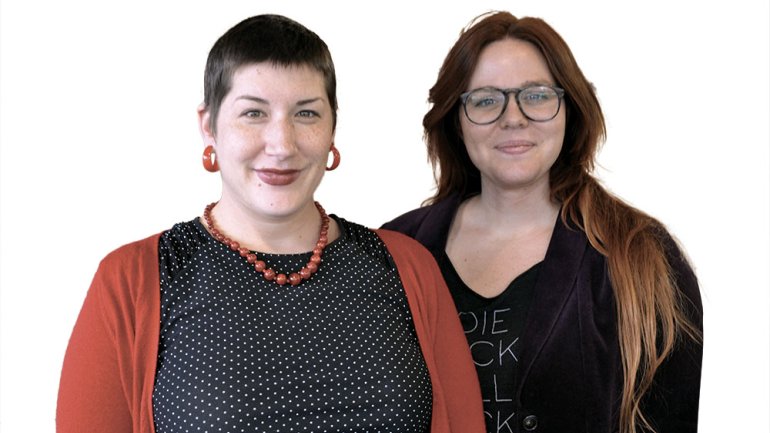How We Live
How We Live
Forage Modern Workshop
4023 E. Lake St.
Minneapolis, MN 55406
612-886-3603
Forage Modern Workshop is not your average store. “We’re not even really in this to make money,” buyer Heidi Smith says. Instead, the stylish Minneapolis shop presents a mix of “Midwest modern” furniture and home goods, both new and vintage, with the goal of getting people to think twice about their stuff – where it came from, who made it, and how it ex-presses their values and tells their stories. They’ve also partnered with three equally mindful local culinary businesses – Dogwood Coffee Co., Rustica Bakery, and Victory 44 restaurant – in an in-house café.
American Craft sat down with Smith and business manager Rebekah Cook.
How did Forage come to be?
Heidi Smith: The owners, Mike Smith (my husband) and James Brown, are general contractors, and through that work became interested in architects, especially local ones like Ralph Rapson and David Salmela. And they realized that a lot of them also make or design furniture. They just fell in love with these people and their work, and they thought, “Let’s start a store; let’s turn people on to this great furniture.” In the year since they made that decision and got Rebekah and me involved, the idea changed and morphed and became what Forage is now, which is a mixture of vintage midcentury furniture and goods, modern pieces being made now, and a lot of locally designed and built things.
It’s unusual to see old and new in one store, and yet it makes sense, especially when you walk in and see all the seamless vignettes of new furniture, vintage finds, local art ...
Rebekah Cook: We like to think of it as the way that we all have in our homes. Here’s something that you’re going to buy new – maybe you’ve saved for it or it’s a big investment piece – but then there’s also this cool picture you got from your grandma, a rug your friend made in art school. A mix of everything.
One of Forage’s express goals is to build community. Can you explain?
Smith: We were surprised at how disconnected the furniture design community was in this area; a lot of people we now represent didn’t know about each other, we discovered. So we got excited about being able to be a resource for them.
Cook: We also want to introduce them to the larger community surrounding them, which maybe hadn’t been as aware as it could be. Matt Eastvold and Squared Furniture both communicated to us that they’d been making most of their sales to the coasts and to Canada. Matt has now sold several pieces in Minnesota in the past year, two of them through Forage.
Is having a physical space part of the difference?
Smith: I think so. Especially with furniture, people like to see it and touch it and experience the scale of it in person. Now artists can say, well, you can come to my studio – which is in my garage – or you can see my piece at Forage Modern Workshop. And seeing it in context with all this other great stuff heightens the validity of what they’re doing.
Tell us more about your emphasis on really engaging with the things in our lives.
Cook: We think it’s important to be aware of what you’re surrounding yourself with. If you have an empty corner, sure, you can go to fill-in-the-blank big-box store and buy something – but you’re not connected to that object. You don’t care about it. It’ll probably break or be replaced. Or you can really figure out what you need and what makes sense and then find a piece that you can have for a long time.
In the store, we work really hard to figure out, “OK, we like this table. But where was it made, who made it, what’s it made of, were the people involved paid fairly?” Because these pieces that we’re saying you should use to tell your story already have stories. You’re carrying somebody else’s story into your home. It’s the same idea as going to a farmers market because you know this guy 30 miles away actually planted those seeds. It can and should be the same with everything that you buy.
It does seem like a natural extension of the awareness Americans have built about food in recent years.
Smith: I hate to refer to the economic downturn of 2008, but that really woke people up to the consumerism that was happening in America. People were throwing their money away on garbage – stuff that falls apart, stuff that doesn’t mean anything. So rather than buying five things in the next 10 years – because they’re all going to fall apart – let’s buy one that’s really important, that’s going to last, that matters.
Cook: And take the time to find the thing that fits and is right for you and your home. Because the people who made it took the time to make it – you know what I mean?
Julie K. Hanus is American Craft’s senior editor.

